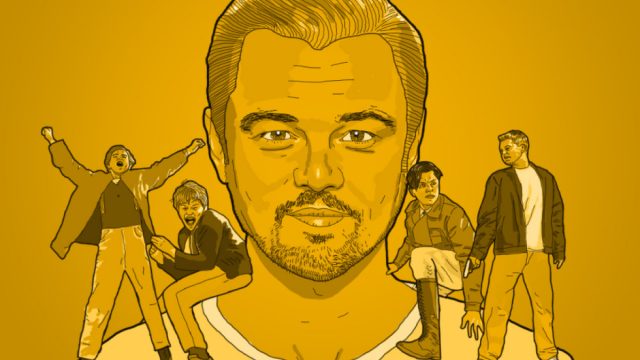Step right up, dears! This week I have Werner Herzog, David Lynch and Leonardo DiCaprio!
On the 8th, Hannah Bonner analyzed Jane Campion’s criminally underrated In the Cut for Bright Wall/Dark Room:
“Additionally, many of us are not used to seeing female characters onscreen whose passions are plural; more accustomed are we to women relegated to the role of the girlfriend, the wife, the sister, the mother, his girl Friday, his femme fatale. Frannie’s vocation is not her only interest, nor does her relationship to Malloy render her more fully dimensional. She’s a dedicated sister, a connoisseur of colloquialisms and good poetry, a self-actualized woman with a healthy libido. I don’t want to be Frannie because I already am her to varying degrees. The identification with this woman is not hero-worship, but quotidian recognition. When Frannie sits with her sister Pauline in a cafe, Pauline remarks that she only remembers guys she’s slept with by how they wanted to do it. She laughs wondering if she’ll ever have the gall to call the shots when it comes to fucking on her own terms first. Frannie laughs with her, but we’ve already seen Frannie negotiate sex in a way that is safe, satisfying, and incredibly intimate.”
Also on the 8th, Grace Edquist of Vogue, spoke to David Lynch about his varied works of art:
“But, arguably, it was not until last year’s retrospective at the Bonnefanten Museum in Maastricht that Lynch’s fine art practice gained wider recognition. The Bonnefanten show featured more than 500 works by the prolific Lynch, in such varied mediums as paintings, sculpture, lithographs, and photography. While several pieces in Squeaky Flies in the Mud appeared in earlier shows, much of the work on display at Sperone Westwater is new, fresh out of his Los Angeles studio.”
Adam Wears listed shady things about Netflix, for Cracked, on the 11th:
“Netflix likes to brand itself as a less evil alternative to Hollywood, which is probably true — although that’s less to do with Netflix and more to do with Hollywood’s proclivity for evil. That said, it has become abundantly clear that the streaming giant isn’t living an entirely blameless life itself.”
Will Thorne of Variety, interviewed international treasure Werner Herzog on the 12th:
“You have to know what a good amount of the population is watching. Do not underestimate the Kardashians. As vulgar as they may be, it doesn’t matter that much, but you have to find some sort of orientation. As I always say, the poet must not close his eyes, must not avert them.”
Also on the 12th, Nathan Smith revisited the episode where Boy Meets World became a slasher movie, over at The Daily Grindhouse:
“The regular cast’s incredulousness that they would survive brilliantly plays up the disposable nature of supporting characters in horror: ‘Well, Kenny, it’s certainly not going to be any of us.’ Followed up by Eric’s constant references to South Park (‘Oh my gosh, they killed Kenny!’). And setting William Daniels (as the stern, wise, but very caring Mr. Feeny) loose to dispense with some funnies is always a welcome sight on my television. When it’s mentioned tat Cory and Topanga are no longer together, he responds with a pitch-perfect and droll ‘Yes, I know. I, too, read Teen Beat, Mr. Hunter’ and “This class will not be more interested in the romantic goings on of its students than it is in whatever the hell I’m teaching!'”
Sonia Saraiya talked about how the Disney v. Netflix streaming war changed TV, on Vanity Fair:
“As recently as a decade ago, television was not a thing you streamed, but the stream—the live feed, the prime-time programming, the newest content. TV was not just the show, but the commercial breaks that interrupted it, the news that preceded it, and the machine itself too. Netflix punched a hole in that idea of television—first, turning the stream into an ocean of content, and second, letting you, the viewer, choose what you wanted to fish out of that ocean at any given time.”
Finally, Bilge Ebiri & David Fear of Rolling Stone, ranked Leonardo’s films:
“DiCaprio could have easily coasted on that matinee-idol success for the rest of his career; instead, he combined his stardom with ambition and talent to became a first-class leading man, working with directors like Steven Spielberg, Quentin Tarantino, Ridley Scott, and, most notably, Martin Scorsese — the latter of whom he’s made five movies with (and a sixth on the way.) And, with his stellar turn in Tarantino’s Once Upon a Time…in Hollywood still fresh in audiences’ memories, now seems like a good time to go over his marvelous career from stem to stern. Here are all of DiCaprio’s movies — not his roles, mind you, but the actual films — ranked worst to best.”
Enjoy!

